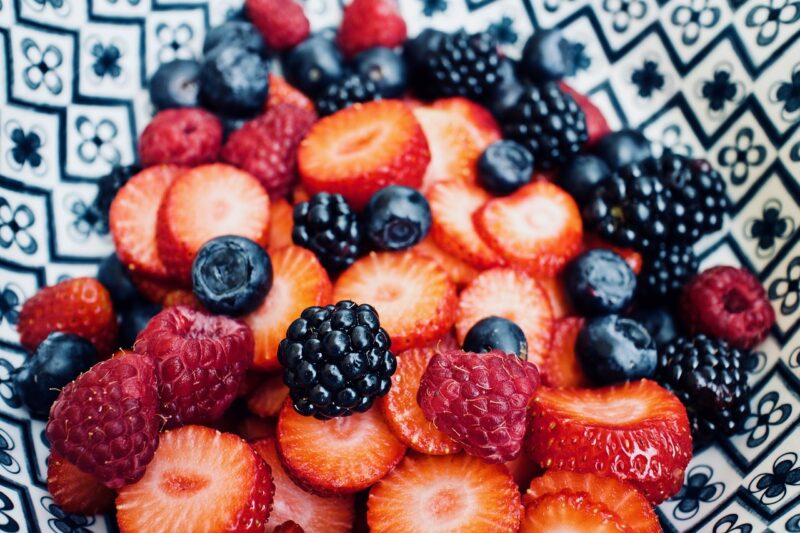
In today’s society, we’re constantly inundated with messages about dieting, weight loss, and what we should or shouldn’t eat. These messages come from social media influencers, celebrities, and even friends or family. As a result, many individuals are grappling with their relationship with food and their bodies, often leading to feelings of guilt, shame, and confusion. This phenomenon is commonly referred to as diet culture, and it can have detrimental effects on our mental and physical well-being.
In this article, we’ll guide you through the journey of breaking free from diet culture and discovering a balanced, flexible approach to eating that promotes health and joy rather than restriction and anxiety.
1. Understanding Diet Culture
Diet culture can be defined as a system of beliefs that equates thinness with health and moral virtue, while associating fatness with illness and vice. This belief system not only promotes restrictive eating habits but also creates unrealistic body standards that are often unattainable for most individuals.
– Misleading Ideals: Media portrayals of ideal bodies create pressure to conform to a narrow definition of beauty, fostering dissatisfaction and often leading to disordered eating behaviors.
– Guilt and Shame: Diet culture perpetuates feelings of guilt when we stray from the ‘rules’ or indulge in ‘forbidden’ foods, creating a toxic cycle of restriction and bingeing.
– Detrimental Effects: Studies show that individuals who engage with diet culture are more likely to experience mental health issues such as anxiety, depression, and low self-esteem.
It’s essential to recognize how diet culture affects our perception of food and our bodies, paving the way for a healthier relationship with both.
2. The Importance of Intuitive Eating
Intuitive eating is a practice that promotes a healthy relationship with food by encouraging individuals to listen to their bodies and make food choices based on internal cues rather than external diet rules.
– Listen to Your Body: Intuitive eating teaches you to tune into your hunger and fullness cues, enabling you to nourish your body in a way that feels right for you.
– Reject Diet Mentality: By abandoning the notion that certain foods are ‘good’ or ‘bad’, you can reduce guilt and stress surrounding food choices.
– Savor Your Food: This approach encourages mindfulness, allowing you to enjoy meals fully and appreciate the sensory experience of eating, which often leads to greater satisfaction.
Studies show that those who practice intuitive eating tend to experience improved mental health, better body image, and a more positive association with food.
3. Practical Tips for Breaking Free from Diet Culture
Making the shift away from diet culture can be challenging, but here are some actionable steps to help you on your journey:
– Educate Yourself: Learn about the foundations of intuitive eating and the pitfalls of diet culture. Reading books like “Intuitive Eating” by Evelyn Tribole and Elyse Resch can provide valuable insights.
– Challenge Diet Talk: When conversations around dieting or body image arise, feel empowered to redirect the discussion or express your views. Surround yourself with people who support your journey towards balance.
– Practice Self-Compassion: Be gentle with yourself during this process. Understand that it’s okay to have setbacks or struggle with your relationship with food.
– Move for Joy: Focus on physical activities that bring you joy rather than aiming for calorie burning or weight loss. Find exercises that you enjoy, whether it’s dancing, hiking, or yoga.
– Seek Professional Help: If your relationship with food feels overwhelming, consider working with a registered dietitian or therapist specializing in intuitive eating and body image.
These small changes can make a significant impact on your overall mindset and health, helping you cultivate a more positive relationship with food.
4. Reclaiming Food Freedom
Reclaiming food freedom means allowing yourself the grace to enjoy food without restrictions or guilt. Here are some strategies to help you:
– Incorporate Variety: Allow yourself to indulge in a wide variety of foods. This not only satisfies different cravings but also ensures that you’re getting a balanced diet.
– Set Boundaries: It’s crucial to determine what types of foods you want in your life without labeling them good or bad. Allow yourself to enjoy treats in moderation without feeling guilty.
– Mindful Eating Practices: Focus on your meals—turn off distractions, chew slowly, and savor the flavors of your food. This can help enhance your enjoyment and satisfaction while reducing overeating.
Food freedom means recognizing that all foods can fit into a healthy lifestyle in moderation, promoting balance rather than rigidity.
5. Building a Supportive Community
Finding a community that embraces body positivity and respectful relationships with food can be a game-changer. Here are some ways to build or join a supportive network:
– Online Communities: Look for online forums, social media groups, or websites dedicated to body positivity and intuitive eating.
– Local Support Groups: Many cities have local meet-ups or workshops that focus on intuitive eating and body positivity.
– Follow Positive Influencers: Seek out social media accounts that promote body acceptance, health at every size, and intuitive eating. Their content can inspire and motivate you on your journey.
A supportive community can provide encouragement, share experiences, and remind you that you’re not alone on this journey.
6. Conclusion: Embracing Balance and Joy with Food
Breaking free from diet culture is not just about changing the way we eat; it’s about changing the way we think. By embracing the principles of intuitive eating, practicing self-compassion, and fostering supportive connections, you can develop a healthy balance with food that promotes joy and satisfaction.
The journey may not be easy, but the reward—a fulfilling relationship with food and a positive body image—will be well worth the effort. Remember, it’s not about perfection; it’s about progress. Start your journey today towards a balanced, joyful life with food.







